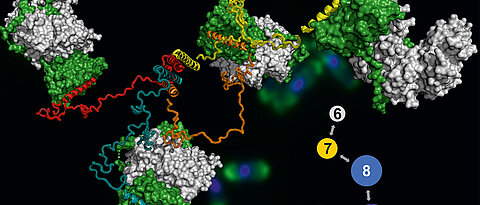Flash mob in the nucleus
06/22/2021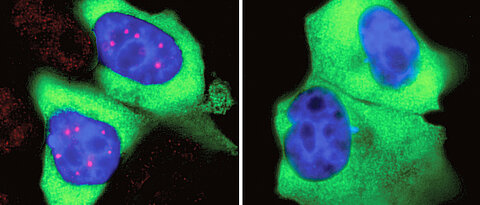
Some proteins concentrate in certain places in the cell nucleus. A new study with Würzburg participation now shows how this happens. The results could contribute to a better understanding of a rare disease.
more

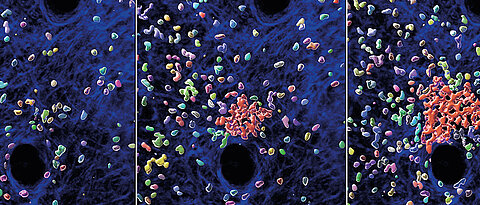
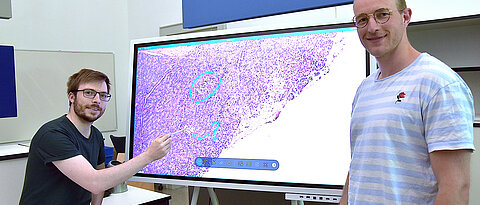
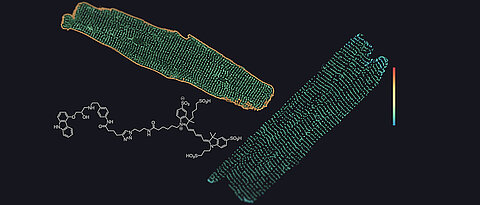

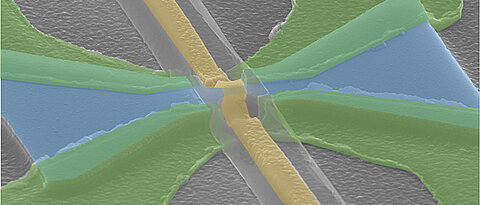
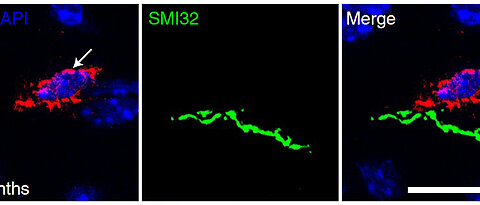
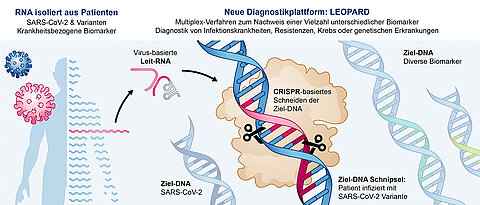
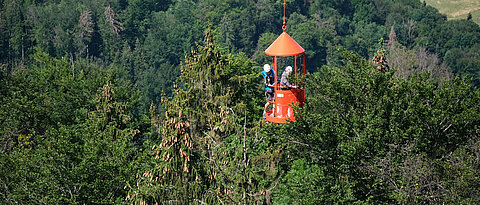


![[Translate to Englisch:] During drought, the signalling molecule GABA is produced and inhibits the opening of leaf pores (left). If the enzyme GAD2, which converts glutamate to GABA, is genetically switched off, the pores remain open even during drought - the plants lose more water (centre). If the gene for GAD2 is reintroduced into the closing cells, the defect is reversed. The experiment shows that the sphincter cells autonomously perceive stress and react to it with GABA production.](/fileadmin/_processed_/8/6/csm_12hedrich-gaba-www_c439cb08b7.jpg)
![[Translate to Englisch:] Violet light triggers a signalling chain in the light sensor protein switch-Cyclop, blue or green light stops the chain. At the end, the production of the signalling molecule cGMP is regulated by the enzyme guanylyl cyclase (GC).](/fileadmin/_processed_/2/f/csm_12nagel-bmcbiology-www_a6d777b6fa.jpg)
